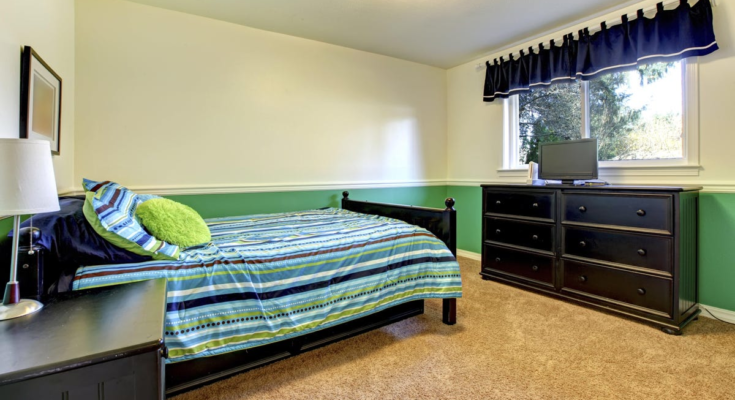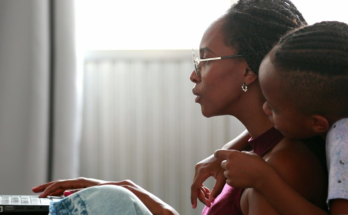
In the past year, many parents had the unexpected experience of their adult children moving back in with them due to various pandemic-related issues, such as their university shifting to online classes, job loss, or financial strain. According to a recent Pew Research Center poll, 52% of young adults between the ages of 18-29 were living with their parents in July 2020. That’s the highest recorded percentage since it started being measured, with the second highest being toward the end of the Great Depression. The nest, once empty, was full again.
Now, as everything opens back up, many parents are dealing with their children moving out again, prompting a second round of empty nest syndrome. For many parents, that can lead to a sense of grief and loss, as well as a re-evaluation of who they are, outside of their parental role. And at this particular moment in time, those feelings are also mingled with the many other stressors of the past 18 months.
“There’s just more vulnerability with COVID,” said Natalie Caine, whose organization, Life In Transition, provides support to parents going through transitions, such as their children moving out.
When adult children move out, and then move back in
“As a family, we have a certain pattern, a way of living that gets somewhat comfortable,” said Jerrold Shapiro, a professor of clinical psychology at Santa Clara University and the author of the book Finding Meaning, Facing Fears: Living Fully Twixt Midlife and Retirement. “Then there’s a shift where you suddenly go from a system where the kids may be a focal point to where the parents are just with each other. That takes a lot of adjusting.”
G/O Media may get a commission
In the case of adult children moving back in, and then moving out again, this has introduced a new tension, as parents have had to first navigate a new set of household rules and expectations for living with their adult children. Even if the parent-child relationship is a healthy one, having an adult child move back in can still be stressful.
“When children leave home, you adjust, you create a new system, then they return, and it requires another set of adjustments, and it’s a complicated adjustment, because when kids come back, they’re not little anymore,” Shapiro said. Then, once their children leave again, parents have to adjust once more. “Every one of these adjustments pushes us into fear of the unknown,” Shapiro said.
Re-evaluating your own goals and dreams
“Facing fears of the unknown in reasonable, moderate chunks is very healthy,” Shapiro said. This could include trying out new hobbies, shifting gears in your career, as well as spending additional time with your partner in order to re-establish a relationship outside the context of their parental roles.
As parents deal with empty nest syndrome, it’s important to be patient, and to remember that adapting will take time. “It’s incredibly difficult to make these adjustments,” Shapiro said. “When you’re adjusting to someone moving into your house and moving out, then moving in and moving out, these adjustments need to be made constantly.”
The biggest challenge that comes with kids moving out is the process of re-establishing their identity outside of their role as a parent. “Parents are struggling with, ‘What is my role?’” Caine said.
Going from the busy schedule of full-time parenting to a quieter, more empty home can be a sharp shock—even if it’s the second time they’ve moved out. For a lot of parents, this is a time to rely on their support network, which includes friends and family, and it’s a good time to re-evaluate some of their own goals and dreams.
“Let yourself enjoy dreaming about something you’ve never done before that you might want to do,” Caine said. “You need to start having your dream list and your reality list.”
For some, that could be re-inventing their career; for others, it could be getting into health and fitness or picking up a new hobby. This dream list will look different for everyone, but it’s important to identify what matters to you, rather than some of the more stereotypical pursuits that others might expect.
Maintain an open line of communication with your children
Just because your children have moved out doesn’t mean you stop being a parent. “The concern about children after they go away to college does not diminish much,” Shapiro said. This is the time when you have to hope that you taught your children well enough, and that whatever stupid, risky things they inevitably do won’t hurt them, at least not permanently. In a world with COVID-19, this also means you have to worry about whether they will stay healthy.
As Caine emphasizes, it’s important to let your kids know that everyone makes mistakes, including you, and that you’ll still be there for them when they do, regardless of whether they learn anything from the experience or not.
“Don’t be the teacher, be the empathetic human,” Caine said. As she points out, if you put too much emphasis on learning from your mistakes, that will confuse kids, leading them to believe that if they don’t learn something, you may not be there for them. “What you really want to say is, ‘Mistakes happen and we are here for you. Period,’” Caine said.



